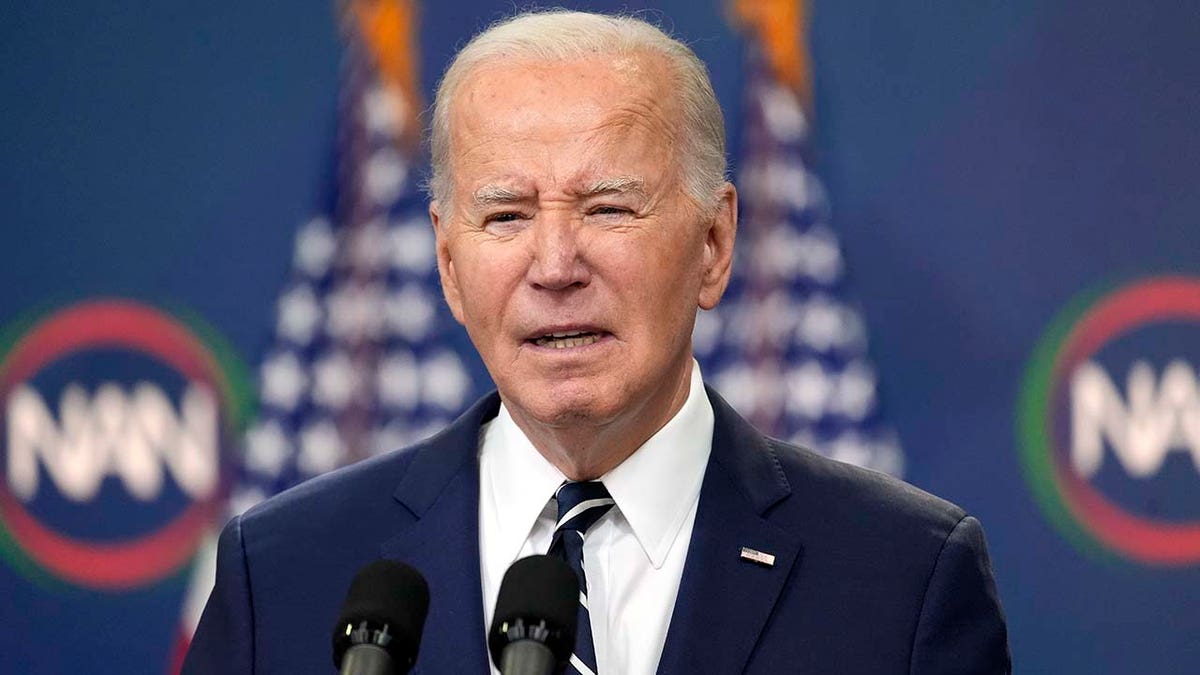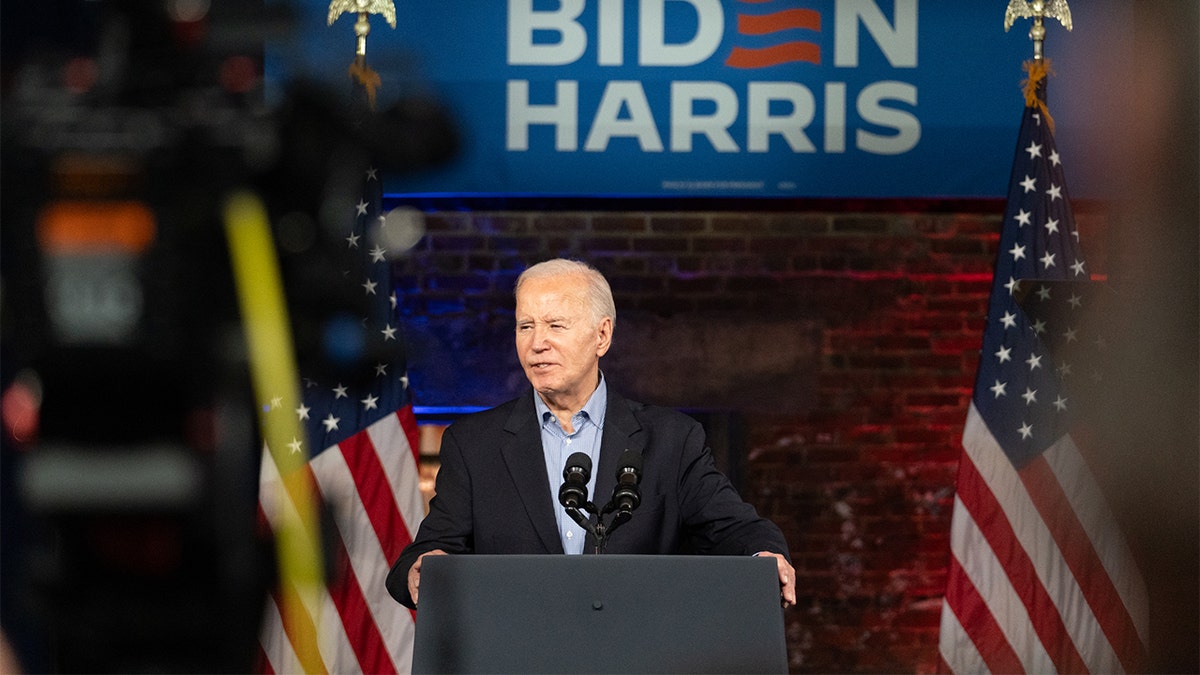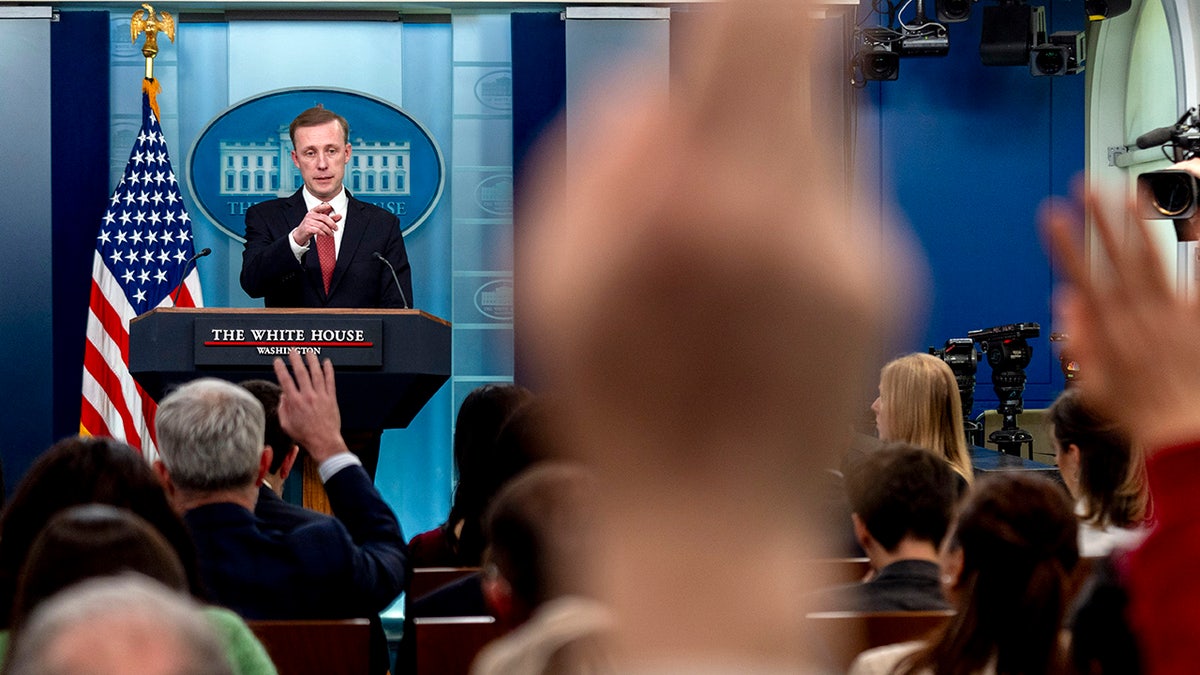Pentagon says Iran's attack was met with 'unprecedented coalition' to protect Israel
Pentagon Deputy Spokeswoman Sabrina Singh responds to questions about Iran’s attack on Israel and whether the U.S. will be more involved.
A U.S. official reportedly laughed off a Politico columnist's question about what exactly President Biden's strategy for Iran is following its missile and drone attack on Israel.
"You know, a lot of people inside the administration ask that same question. Sometimes they ask it on the first day. Sometimes they ask it six months later," the official reportedly told Politico's foreign affairs correspondent Nahal Toosi after her question was met with laughter.
Toosi included the exchange in a column published Tuesday and asserted that Biden doesn't have a strategy for handling Iran. The Middle Eastern nation on Saturday launched hundreds of missiles and drones against Israel, which was largely protected by its air defense system, along with help from allies including the U.S.
She also said Biden's aides have tried to keep the Iran issue off the president's desk.

President Joe Biden speaks to the National Action Network Convention remotely from the South Court Auditorium of the White House, Friday, April 12, 2024, in Washington. (AP Photo/Alex Brandon)
SEVERAL COUNTRIES COME TO ISRAEL’S AID TO STOP IRAN BARRAGE
"The strategy is to keep it on low boil on all fronts — nuclear, regional, whatever. That’s been the approach for some time now," another U.S. official told Toosi.
"He believes Iran is a problem, but doesn’t appear to have a coherent plan for how to solve it," the columnist wrote.
Toosi wrote that the Biden administration was managing the issues around Iran, but "not trying to solve it." She noted Biden has mostly kept former President Trump's sanctions on Iran, but that the sanctions had not "hurt Iran enough" to change its behavior.
The attack on Israel has put a spotlight on Iran's nuclear capabilities, as it is dangerously close to securing a nuclear bomb. It is also responsible for unrest in the region, as Tehran backs multiple terrorist groups, including Iraq's Kata'ib Hezbollah, Yemen's Houthi rebels, Lebanon's Hezbollah and the Palestinian terrorist group Hamas.

President Joe Biden speaks at a campaign event at Pullman Yards on March 9, 2024 in Atlanta, Georgia. (Megan Varner/Getty Images)
IRAN LAUNCHES DRONES TOWARDS ISRAEL WEEKS AFTER DEADLY SYRIA CONSULATE STRIKE
Toosi acknowledged that it was an "undeniably hard problem," and said Biden had been pursuing a "regional integration" plan in the Middle East, which seeks to connect Israel with other Arab states, as well as India, economically and diplomatically.
Toosi suggested this was not likely to succeed.
"The U.S. hopes to see Saudi Arabia and Israel establish diplomatic relations, Washington and Riyadh enter a security pact, and Israel agree to a pathway for a Palestinian state," she wrote. "These pieces all depend on the others, and the people pushing them might as well buy a lottery ticket."
"The Middle East is too fractured and complicated for the United States to hope that a regional integration strategy might some day, maybe, lead to a fundamental change in Iran," Toosi concluded.

White House National Security Adviser Jake Sullivan takes a question from a reporter during a press briefing at the White House in Washington, Monday, March 18, 2024. (AP Photo/Andrew Harnik)
CLICK HERE TO GET THE FOX NEWS APP
National Security Council spokesperson Adrienne Watson pointed Fox News Digitial to the statement provided to Politico.
"We focus on actually degrading Iran’s capabilities, while strengthening those of our partners and allies. Iran’s economy is in the tank, with the Rial at an all time low," she said. "Its vaunted missile program did more damage in Iran through failure than in Israel."
"Containing and degrading Iran while strengthening the capacity and integration of American partners takes hard work and persistence," Watson continued. "Saturday was a test, and it worked."
On Tuesday, White House National Security Adviser Jake Sullivan announced the U.S. would impose new sanctions on Iran, "including its missile and drone program as well as new sanctions against entities supporting the Islamic Revolutionary Guard Corps (IRGC) and Iran’s Defense Ministry."
Sullivan added that the actions the U.S. is taking will "continue a steady drumbeat of pressure to contain and degrade Iran’s military capacity and effectiveness and confront the full range of its problematic behaviors."









































